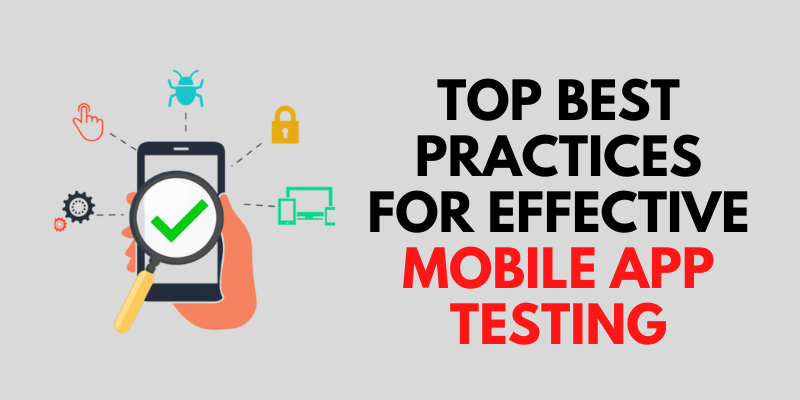
Mobile app testing is unique in its way and challenges. This is due to the numerous mobile operating systems (OSs), device sizes, and usage scenarios that make app testing difficult. Join FITA Academy for the best Mobile Testing Training in Chennai. Furthermore, if your app does not work, users will uninstall it immediately and move on to the next best app. Here are a few points to help you succeed with app testing and deployment. Here, we describe the top things to consider when testing mobile apps.
Top Best Practices for Effective Mobile App Testing:
Select a Proper Device to Test:
The number of devices required to run the app test is determined by the number of platforms and screen sizes you target. If you lack the necessary number of devices, you should simulate the relevant parameters and conduct the tests accordingly.
Know Your App:
Before testing the app, you must understand its functionality and system architecture. Consult the documentation to grasp the business concepts and app architecture fully. It will assist you in identifying the fundamental flaws. Also, remember the type of mobile app you intend to create and build the necessary test cases.
Consider Usability and UI Testing:
Many users will experience a computer interface for the first time through their smartphones. These include smartphone users who have yet to do much work on a PC. As a result, a developer’s app must be user-friendly and intuitive for freshers and experienced users.
Functional Testing is Important:
It is essential to test your app on various platforms or devices with multiple screen sizes to ensure that the app has a consistent look and feel. Give functional testing precedence over graphics testing. Test your app on the popular device used by your target audience and ensure it is fully functional. Mobile Application Testing Online Training offers certification training with 100% placement assistance.
Concern for the Real Environments:
Concern for various environments will set your mobile app testing apart from traditional testing.
- Unstable network connections
- SMSs, incoming calls, alarms, and low-battery warnings cause interruptions.
- Time zone and GPS location differences
- Changes in the notification and sound settings
Run Performance-Based Tests:
You must run performance-based tests to ensure your app is not a performance hog.
- Disk space
- Battery
- Processing power
Manual or Automated Testing:
Many automated tools are available for testing mobile apps, but manual testing should not be overlooked. Using automated tools when trying recurring data sets and running frequent test cases.
Latest Upgrades:
Developers should also test the upgrades. The OSs are frequently upgraded. So no mobile app developer wants their app to become obsolete with the very new upgrade simply because they were unaware of the latest upgrade.
Conclusion:
I hope Now you would have understood the Top Best Practices for Effective Mobile App Testing. So, to have a profound understanding of mobile app testing, you can join Mobile Testing Training in Bangalore and equip yourself with its benefits, features and concepts.
Read More: Mobile Testing Interview Questions
